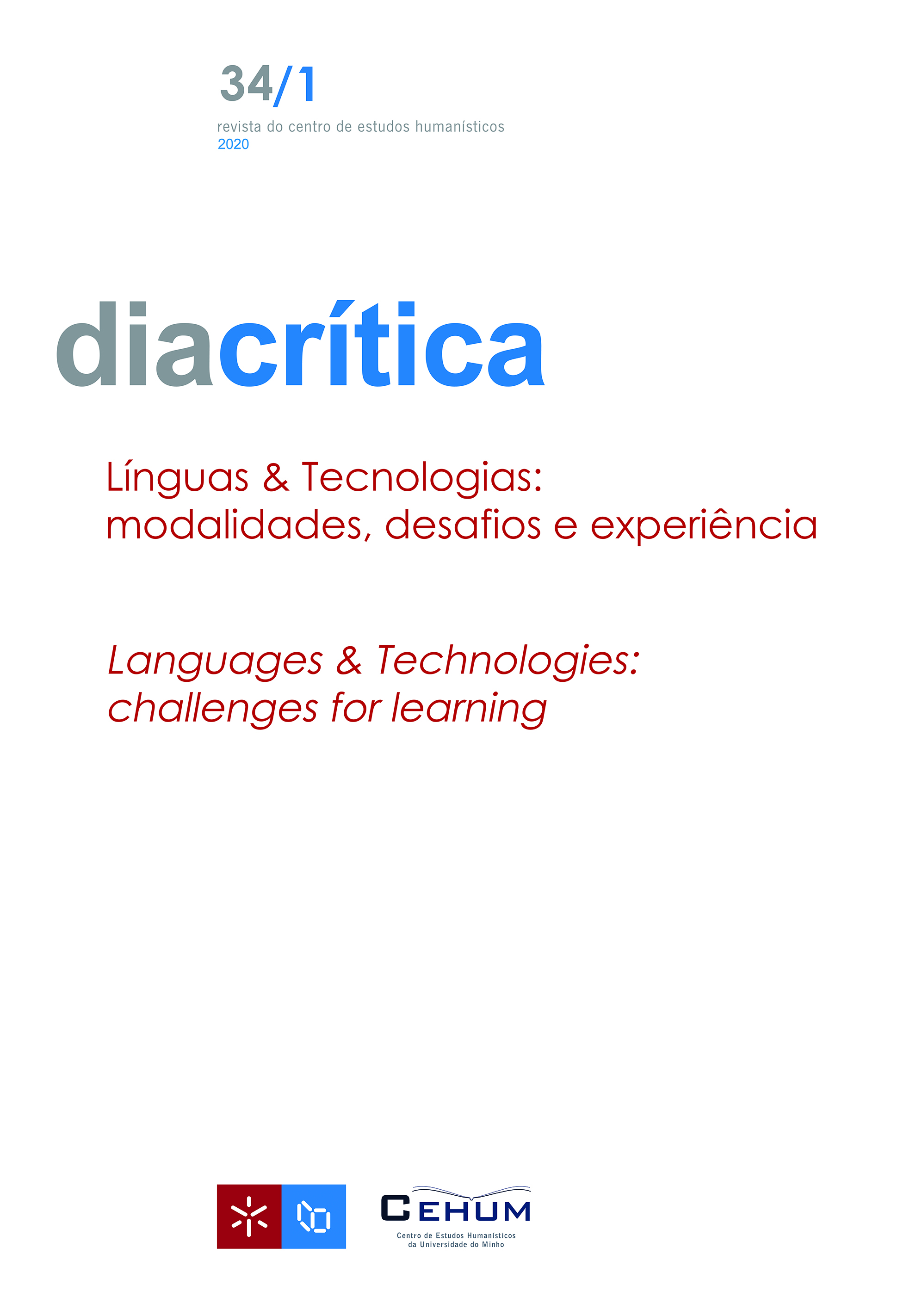Modern fruits of baroque trees: Adaptation strategies of father António Vieira’s sermons to comic-book story
DOI:
https://doi.org/10.21814/diacritica.4966Keywords:
Father António Vieira SJ, ICT, Comic-book storyAbstract
Father António Vieira SJ,in his sermons,seeks the verbal cadenceand a set of images, ideas and concepts to create a fluid text constructed before the reader’s eyes. However,twenty-first century society is far distant from the one that sawand heard these texts, in the XVII century. Thus, it is necessary that new approaches to Vieiratexts be presented in a problematized way to the new generations. Using adaptation methods, it is possible to give a new outfit to the Portuguese Jesuit work, by illustratingin comic-book stories the argumentation reasonings, the allegories and examples presents in his texts. Therefore,this article intents to examine concepts such as adaptation, transposition and intermedia, Vieira’s constitutive elements of thought and verbal structure, and their applicability in the new Information and Communications Technology. Taking as an example the productions of comic-book stories developed in the research project Readings of Father António Vieira SJ work: The logical architecture, the rhetorical construction and the argumentative actuality, especially the one about theSermon of the Good Thief, it shows how, through the articulation between the verbal and non-verbal language, it is possible to buildpaths to new readers of Father Vieira works.
References
Barthes, R. (1990). Sade, Fourier, Loyola (Trad. Mário Laranjeira). São Paulo: Brasiliense.
Bastin, G. L. (1990). Traduire, adapter, réexprimer. Meta, 35 (3), 470–475. DOI: https://doi.org/10.7202/001982ar
Bastin, G. L. (1993). La notion d’adaptation en traduction. Meta, 38 (3), 473–478. DOI: https://doi.org/10.7202/001987ar
Bíblia Sagrada (1977). São Paulo: Edições Paulinas.
Gaudreault, A. & Marion, P. (2012). Transescritura e midiática narrativa: questões de intermidialidade. In. T. F. N. Diniz (Eds.), Intermidialidade e estudos interartes: desafios da arte contemporânea (pp. 107–128). Belo Horizonte: Editora da UFMG.
Hutcheon, L. (2013). Uma teoria da adaptação (Trad. André Cechinel). Florianópolis: Editora da UFSC.
Lajolo, M. (2009). O texto não é pretexto. Será que não é mesmo? In R. Zilberman & T. M. K. Rösing (Eds.), Escola e leitura – velha crise, novas alternativas (pp. 99–112). São Paulo: Global.
Machado, A. M. (2009). Como e por que ler os clássicos universais desde cedo. Rio de Janeiro: Objetiva.
Miranda, M. (2017). Orator fit... Aspetos da formação retórica de Vieira. In A. do Espírito Santo, A. P. Banza, C. Pimentel, I. Almeida, M. C. Pimentel (Eds.), Estudo sobre o Padre António Vieira – A sedução da palavra: Os sermões. Lisboa: Imprensa Nacional Casa da Moeda.
Pécora, A. (1994). Teatro do sacramento: A unidade teológico-retórico-política dos sermões de António Vieira. São Paulo: EDUSP.
Postema, B. (2018). Estrutura narrativa nos quadrinhos. São Paulo: Peirópolis. DOI: https://doi.org/10.11606/issn.2316-9877.v8i2p9-35
Reis, C. (2018). Estudos literários e ensino da literatura: o jardim dos caminhos que se cruzam. In P. S. Cardoso & L. Bueno (Eds.), Nós e as palavras. Cotia: Ateliê Editorial.
Saraiva, A. J. (1980). O discurso engenhoso. São Paulo: Perspectiva.
Vieira, A. (2015a). Sermões da Quaresma e da Semana Santa. São Paulo: Edições Loyola. (original publicado em 1679)
Vieira, A. (2015b). Sermões e discursos vários. São Paulo: Edições Loyola. (original publicado em 1679)
Downloads
Published
How to Cite
Issue
Section
License
Copyright (c) 2023 Saulo Gomes Thimóteo

This work is licensed under a Creative Commons Attribution-NonCommercial 4.0 International License.










